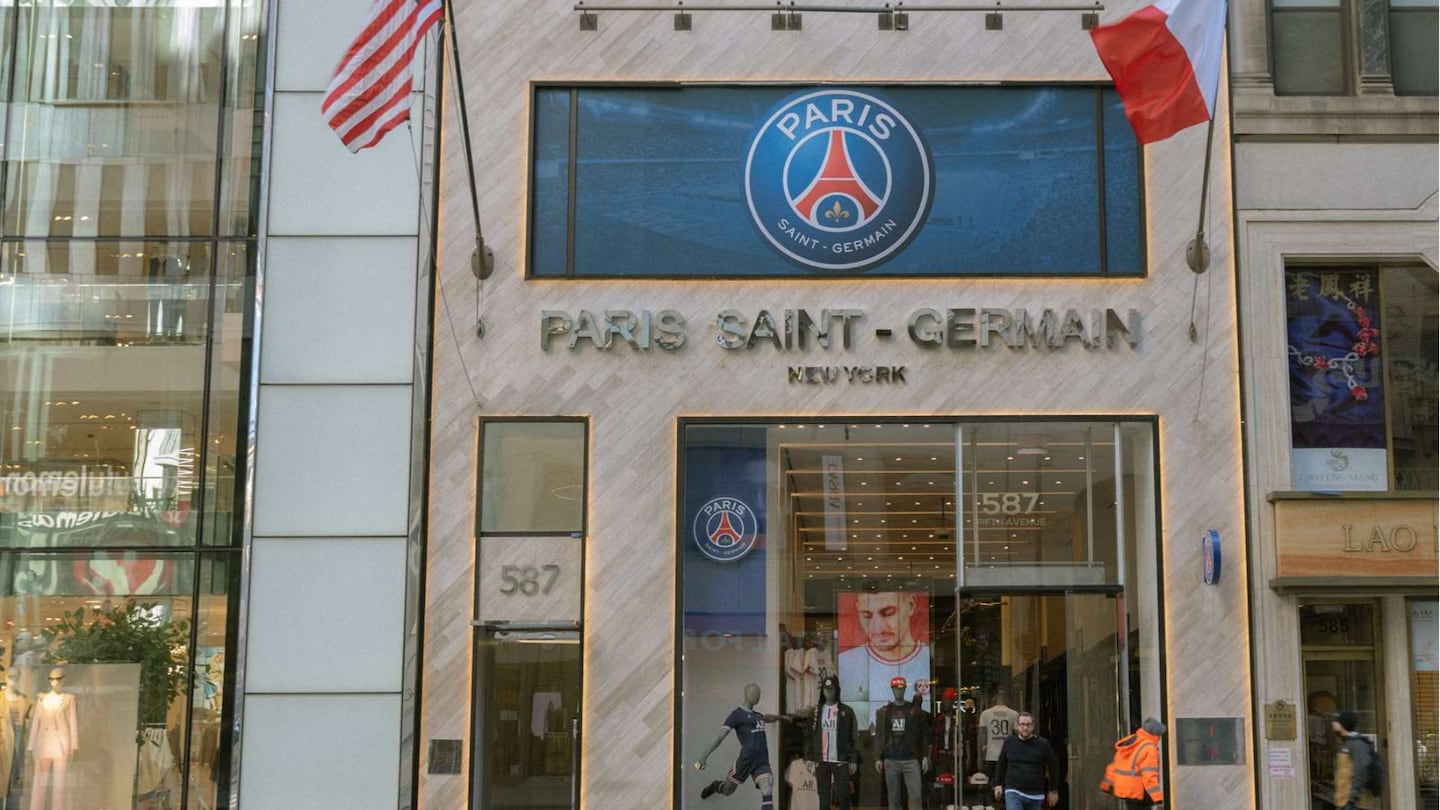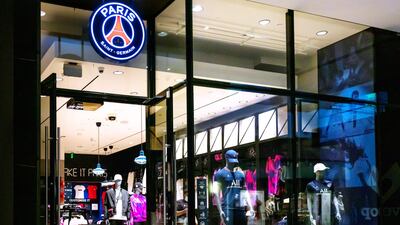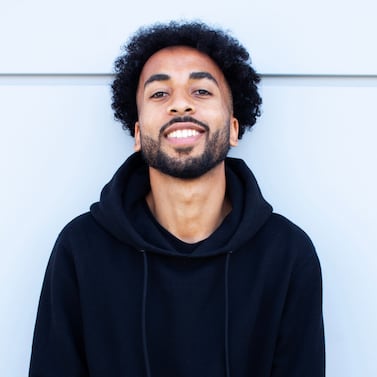
The Business of Fashion
Agenda-setting intelligence, analysis and advice for the global fashion community.

Agenda-setting intelligence, analysis and advice for the global fashion community.

Paris Saint-Germain may be the world’s coolest football club. Its jersey has graced the runway at Paris Fashion Week with Parisian brands Koché and Louis Gabriel Nouchi, while hip-hop legend J Cole wore a special edition PSG shirt in a viral music video.
But the club didn’t always have the cultural cachet it does today. Over the last 10 years, PSG has successfully built its brand to be more than just a sports team. By opening stores worldwide, collaborating with fashion labels like Dior and Stüssy, and expanding its e-commerce footprint by working with licensed sportswear retailer Fanatics, PSG is looking to position itself as a bona fide fashion brand.
Last week, it unveiled its latest flagship store on New York’s 5th Avenue, alongside labels like Louis Vuitton and Valentino. This is PSG’s 16th store. Other locations include the Westfield Century City mall in Los Angeles, the Champs-Elysées in its hometown, and Tokyo’s Shibuya Parco luxury shopping mall.
Today, PSG has already surpassed $40 million in e-commerce sales of its jerseys, tracksuits and other activewear pieces, the majority of which are licensed through Nike. While most of its products are priced below $100, pieces in luxury collaborations are sold at higher prices, in drops that typically sell out within hours. The club aims to hit $60 million in e-commerce revenue by 2026, per Mike Ozanian, assistant managing editor of Forbes Media. Fanatics runs PSG’s global e-commerce and brick-and-mortar operations, controlling the production, distribution and marketing of the club’s branded apparel. The PSG retail business has ample opportunity to grow as it plans to open new stores in China and Europe, according to Zohar Ravid, senior vice president, global corporate development at Fanatics, which began working with PSG in 2020.
ADVERTISEMENT

Part of the strategy is simply selling merch — not a difficult task for a popular sports team. PSG, nonetheless, is trying to carve out a space for itself in fashion, too, joining a saturated landscape of sports, streetwear and lifestyle brands. Its competition is made up of far more established brands like Adidas and Supreme.
Beyond the Pitch
In 2010, PSG was a storied yet cash-strapped football team, hampered by corporate mismanagement and struggling in Ligue 1, France’s top division. But in the following year, Qatar Sports Investments, a subsidiary of the Qatari sovereign wealth fund, took a controlling stake in the business. Suddenly, the club had cash to invest in not only player transfers but marketing its brand too.
Today, PSG is among the top 10 richest football clubs worldwide. In 2021, the company’s revenue was $599 million, the bulk of which was generated by broadcast revenue, match day income and sponsorship. But e-commerce is a growing segment of PSG’s lucrative earnings. Since 2020, online sales have risen 300 percent.
The Qatar Sports Investments takeover came at a time when the world’s biggest football teams like Manchester United and Barcelona were also starting to think of themselves as brands, building out their product offerings, e-commerce and digital marketing strategies. Smaller Parisian club Red Star FC even hired a creative director in 2016. PSG, though, is by far the most ambitious among the other teams. And it has an advantage: With a die-hard fan base, the club already touted a long-standing connection to street style and youth culture in Paris, where PSG tracksuits and jerseys were commonly sighted.
“It’s a lifestyle brand that was born in the streets of Paris — long before the money arrived at PSG,” said Walter D’Aprile, founder and chief executive of NSS Magazine, a Milan-based digital publication and creative agency.
Strategic Collaborations
In building its brand, PSG’s most effective strategy so far has been collaborations with fashion labels. The club is the first major sports team to work with the likes of Dior and streetwear labels Stüssy and 3. Paradis, according to Jordan Wise, co-founder of GAFFER and False 9, a London-based agency dedicated to “bridging the gap” between fashion and football.
ADVERTISEMENT
Its ongoing partnership with Nike’s Jordan brand, which launched in 2018, cemented PSG’s clout in North America, a market which football brands typically struggle to penetrate because of the dominance of the NBA and NFL.
“The Jordan co-sign has undoubtedly been instrumental to the rise of the club as a fashion player,” Wise said.
PSG match jerseys and training gear now carry the iconic Jordan “Jumpman” logo, while the partnership has produced PSG-themed adaptations of the signature Air Jordan 1, 4 and 6 sneakers. The PSG x Jordan 4 sneakers are currently listed on StockX for $429.
“Each Jordan drop we do sells out within the first day,” Ravid said.
Collaborations with Dior and brand tie-ups at Paris Fashion Week allowed PSG to align its brand with luxury fashion. The Dior formalwear partnership earned the club valuable product placement across the luxury brand’s social accounts.
Meanwhile, collaborations with classic streetwear names like Stüssy, in February, and Bape, in 2018, has allowed PSG to display its connection with street fashion, retaining the gritty, urban feel of the club’s appeal. The PSG and Bape capsule’s puffer jackets sell for more than $2,000 on some resale platforms and the jackets’ price on StockX has increased by 713 percent since 2018. Such collaborations, while a small percentage of PSG’s overall products, drive hype and elevate the rest of the club’s more affordable offering.
Influencer Players
PSG’s player recruitment strategy is also aligned with its ambitions in fashion. The club boasts an elite stable of social media-savvy footballing talent who count as brands in their own right. The stars of its men’s team — Lionel Messi, Neymar Jr and Kylian Mbappé — have a combined 548 million followers on Instagram alone, and act as ready-made models and tastemakers for the marketing of club apparel and collaborations. Mbappé's recent post showing off the latest PSG x Jordan collection fetched over five million likes on Instagram.
ADVERTISEMENT
Players are also comfortable navigating the fashion world — earlier this month, Neymar, Mbappé and their Italian teammate Marco Verratti were in the front row for Olivier Rousteing’s Balmain show at Paris Fashion Week.
“PSG was first-to-market in building fashion out of a major football brand,” Wise said. “It will now always have this authenticity as the originator of this movement.”
Fashion and football have a complicated history, but labels from Dior to Moncler now see major opportunities in the world’s most popular sport.
The store will be operated by American retailer Lids and online sportswear retail specialist Fanatics.
Dior artistic director Kim Jones has designed the team’s official wardrobe for the next two seasons, marking the luxury brand’s first tie-up with a

Daniel-Yaw Miller is Senior Editorial Associate at The Business of Fashion. He is based in London and covers menswear, streetwear and sport.
The rental platform saw its stock soar last week after predicting it would hit a key profitability metric this year. A new marketing push and more robust inventory are the key to unlocking elusive growth, CEO Jenn Hyman tells BoF.
Nordstrom, Tod’s and L’Occitane are all pushing for privatisation. Ultimately, their fate will not be determined by whether they are under the scrutiny of public investors.
The company is in talks with potential investors after filing for insolvency in Europe and closing its US stores. Insiders say efforts to restore the brand to its 1980s heyday clashed with its owners’ desire to quickly juice sales in order to attract a buyer.
The humble trainer, once the reserve of football fans, Britpop kids and the odd skateboarder, has become as ubiquitous as battered Converse All Stars in the 00s indie sleaze years.